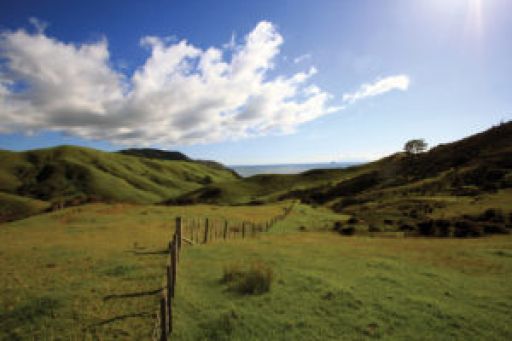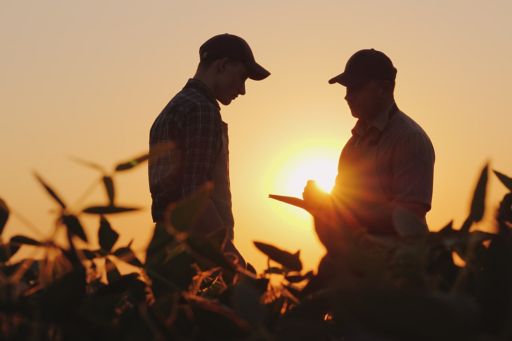Week in Review
[16 September 2021]
This week it’s all about Agritech and research innovation both here in New Zealand, and internationally.
A Robotics Plus and University of Waikato team receive funding for their robotic asparagus harvester project, research outlining barriers for farmers to uptake agritech is released, and the Government announces the recipients of its endeavour fund.
Internationally the latest round-up of investing sees 2021 well on track to be another record breaking year for agrifoodtech investment, reaching USD$21b for the first half of the calendar year.
This week Jack Keeys speaks with KPMG Director and Head of Propagate Andrew Watene on the consumer market in the UK and Europe. Andrew shares his insight from various business executives and leaders operating across the supply chain and builds further from the writing he published in the Agribusiness Agenda 2021.
Previous issues
To read previous editions of Field Notes please click here.
Spotlight Stories
International Spotlight

Data Snapshot: 2021 set to break new record for agrifoodtech investment; $24bn raised in H1 [9 September, AgFunderNews]
Agrifoodtech startups globally raised US$24 billion in the first half of 2021, getting very close to the record total raised during all of 2020 at US$30. EGrocery was the best-funded category, taking 23% of funding followed by Midstream Technologies at 15% and In-Store Retail & Restaurant Tech at 13%. Despite China’s massive eGrocery deals, which accounted for nearly all of the US$4 billion in total funding to Chinese agrifoodtech in H1, the US remains by far the largest market for agrifoodtech.
Tag: International, Agritechnology
Innovation Spotlight

Govt pours millions into food projects aiming to transform industry [08 September, Food Ticker]
A New Zealand tree syrup industry, smart food packaging materials, , multi-species aquaculture, and mānuka honey quality are among the 69 new research projects to secure NZ$244 million funding from the Government’s Endeavour fund. Many institutions and universities have been allocated the funds to develop, accelerate and open new areas of opportunity to transform the industry.
Tag: Food Innovation, Agritech
This Week's Headlines
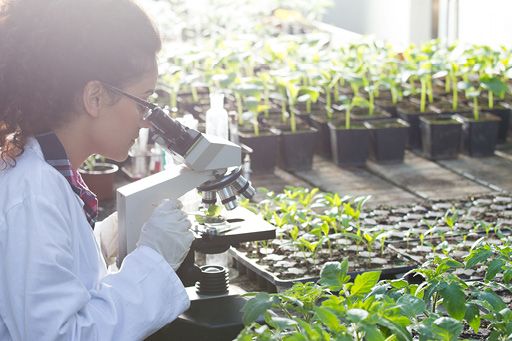
A biotech startup has raised millions to resurrect woolly mammoths [13 September, Morning Brew]
Gene-editing pioneer and Harvard professor George Church and serial entrepreneur Ben Lamm have created a company called Colossal, which aims to re-create and rewild the woolly mammoth. Colossal uses the gene-editing technology CRISPR to develop a proxy of the megafauna that vanished around 4,000 years ago. In their heyday, mammoths helped stabilise the arctic ecosystem, particularly the all-important permafrost layer, which is estimated to contain four times as much carbon as humans have emitted since the Industrial Revolution.
Tag: International, Research & Development
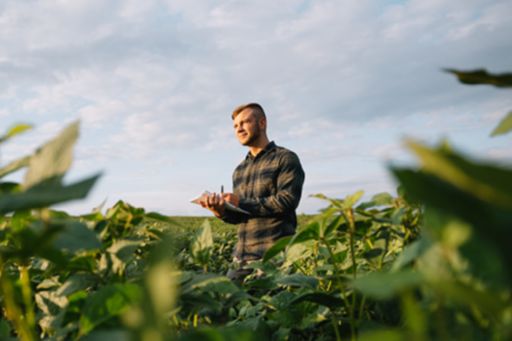
Dairying repays, horticulture borrows it back [15 September, Farmers Weekly]
Bank lending to the agricultural and horticultural sectors has grown in the June quarter to NZ$60.82 billion, up by NZ$64 million compared with March 31. It was reportedly the first quarter of loan growth for some time as the dairy industry's recent dominance has featured loan repayments from good milk payouts. ANZ remains with the largest market share of 26.3%, followed by BNZ on 21.1%, Rabobank 18.7%, ASB 16.9%, Westpac 15.2% and Heartland 1%.
Tag: Agribusiness, Farmers & producers
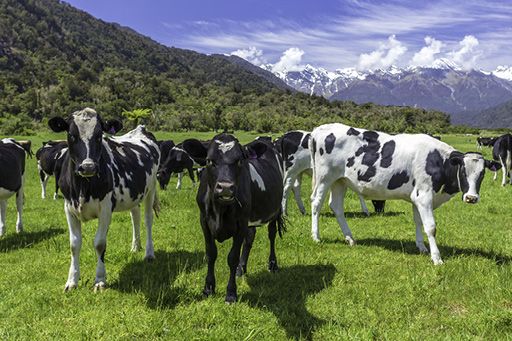
No bull: Kiwi scientist potty trains cows to use 'MooLoo' [14 September, NZ Herald]
Scientists in New Zealand and Germany tested and trained cows to use a ‘Mooloo’ toilet when urinating , training 11 out of 16 cows during the experiment. The researchers used a sweet treat to coax the cows to push through a gate and urinate in a special pen, and it only took 15 days to train the young calves. Donald Broom, a professor of animal welfare at the University of Cambridge in England, says if it is scalable, toilet training animals makes it easier to manage waste products, in particular capturing and containing cow urine.
Tag: Research & Development, Environment & Emissions
Top stories
IGS to develop academic partnership outreach with appointment of Chris Horne [08 September, Intelligent Growth Solutions]
Entrepreneurial agribusiness operator Chris Horne has joined Intelligent Growth Solutions to offer strategic insight and consultancy as commitment to research and development for vertical farming increases to benefit growers and their customers. This will cover three key pillars: the vertical farming system, plant science, and agronomy. Horne’s role will include global outreach to universities and academic institutions to establish meaningful partnerships designed to further understand how crops respond to being grown in controlled indoor environments.
Tag: International, Agritech, Horticulture
Robotic asparagus harvester aimed at addressing industry challenges [09 September, Beehive]
Agriculture Minister Damien O’Connor announced that the government is backing a NZ$5 million project for the development of a commercial-scale autonomous robotic asparagus harvester. He says the harvester will help address the ongoing labour shortages in the industry and support New Zealand asparagus growers to tap into high-value export markets. Project partner Robotics Plus Limited will build on the prototype developed by Waikato University researchers, and the NZ Asparagus Council will develop a strong marketing proposition for exporting the asparagus.
Tag: Horticulture, Agritech, Food Innovation
US-NZ trade relations stagnant [09 September, Farmers Weekly]
After eight months into the Biden administration, there is reportedly less hope of significantly improving trade relations with the United States. Sources say there is virtually no chance of the US joining the Comprehensive and Progressive Trans Pacific Partnership, as President Joe Biden has other things on his mind such as battling covid, investing in ‘the American worker’ and their families, and restoring neglected infrastructure. The Trump administration was strongly protectionist and Biden appears to be doing little to reverse that trend.
Tag: Trade & Exports
Covid 19 coronavirus Delta outbreak: Campaign encourages Kiwis to buy local pork [09 September, NZ Herald]
Kiwis are being encouraged to support New Zealand's pig farmers by only buying "home grown" pork as with many restaurants closed during lockdown, the sector is concerned about a possible surplus of pork. NZ Pork has launched a social media campaign to encourage Kiwis to back local farmers and choose New Zealand born and raised pork over imported pork. "We'll be sharing the stories of some of New Zealand's pig farmers talking about what makes New Zealand pork such a delicious and quality product,” said chief executive of NZ Pork, David Baines.
Tag: Pork, Food Marketing, Animal Welfare
Chris Quin on Foodstuffs’ category reset and its ‘phygital’ future [10 September, Food Ticker]
According to Foodstuffs North Island boss Chris Quin, a three-year project to rebuild the co-operative’s supply chain systems helped the group manage last month’s sudden lockdown, which tripled demand in the span of four hours. Quin said the project saw the group install a new fully digital capable platform that could better accommodate and respond to future shopping and consumer trends. “In the last two weeks we have gone from about 1.8 million cartons a week moving through our supply chain to 2.4 million and the system stands up and does it,” he adds.
Tag: Food Marketing, Covid-19
Meat pushes food prices to fifth consecutive rise [13 September, Rural News Group]
Statistics New Zealand have announced that food prices rose 0.3% in August 2021 compared to July, marking a fifth consecutive rise, largely influenced by higher meat, poultry, and fish prices. Meat, poultry, and fish prices were up 1.3% in August, as a result of higher prices for roasting pork (up 11%), sausages (up 3.5%), lamb chops (up 5.4%), and porterhouse and sirloin steak (up 2.3%). This was partially offset by lower prices for chicken, which were down 3.3%.
Tag: Food Security, Red Meat
Primary sector faces migrant workforce exodus [10 September, Farmers Weekly]
Tighter immigration laws have stalled the processing of residency applications, generating uncertainty among 200 foreign dairy farm workers and prompting many to return home or move to other countries. Pandemic controls have added to staffing difficulties with the Government freezing managed isolation quarantine bookings. This could delay the arrival of 200 exempted foreign dairy workers and skilled seasonal workers, such as machinery operators, until the new year.
Tag: Farmers & Producers, Policy and regulation, Rural Communities
Groundswell NZ hint at upcoming 'Mother of All Protests' in November [10 September, Stuff]
On Friday, farmer protest action group Groundswell NZ posted on social media telling its supporters to save the date for ‘The Mother of All Protests’ to be held on November 21. The group wants freshwater improvement to be managed by catchment groups and rules significant natural areas and the ‘ute tax’ to be re-written or abolished because they are deemed impractical. Co-founder Bryce McKenzie said the group would release more information about the protests, which would be held nationwide, next week.
Tag: Farmers & Producers, Rural Communities, Policy and regulation
Export dairy processing factory set to put Tokoroa back on the map [14 September, Stuff]
Olam Food Ingredients (OFI), a subsidiary of multibillion dollar Singaporean agri-business Olam International, which supplies food and industrial raw materials to over 19,800 customers worldwide, will soon begin constructing a New Zealand dairy processing facility in Tokora. It is expecting to create around 60 full-time jobs. OFI ranks among the top three dairy suppliers globally, and the Tokoroa plant will become part of its global network which spans 20 major milk consumption markets, including South-East Asia, China, the Middle East, and Africa.
Tag: Dairy, Agribusiness
China still takes the lion’s share of NZ meat [14 September, Farmers Weekly]
The Meat Industry Association’s annual report said China continued to take 40% of New Zealand’s meat and co-products exports in the 2021 financial year, paying NZ$3.64 billion out of $9.1b total export revenue. Half of China’s expenditure was on NZ sheepmeats, one-third on beef and the rest co-products. China’s 39% share fell slightly, as other exporters like Brazil, Argentina and the US improved their access, but led the demand for co-products like casings, tripe, hides, skins and offals. The report shows that the United States was the second-largest market, paying $1.87b.
Tag: Trade & Exports, Red Meat
Milk price forecasts go both ways [14 September, Farmers Weekly]
A predicted slowdown in Chinese import demand for milk powder is reportedly why Rabobank has trimmed 20c from its farm gate milk price forecast, now NZ$7.80/kg milksolids. The analysis of China’s needs and the cut in milk price expectations were done before the latest Global Dairy Trade auction, in which the price index rose 4% and whole milk powder rose 3.3%. Rabobank senior analyst Emma Higgins says “the dynamics and balance of risks appear to be changing with robust demand bumping up against subdued supply”.
Tag: Dairy, Trade & Exports, Agribusiness
Breaking tech barriers [14 September, Farmers Weekly]
A study from AgResearch has found that farmers’ reluctance to share data is slowing the adoption of technology that could help transform New Zealand’s food production systems to be more sustainable, resilient and consumer-focused. The research team identified at least 22 different barriers to the uptake of technology, including data collection, new analytics, models, robotics, Internet of Things, and machine learning. One surprise finding is a feeling among some farmers that the adoption of hi-tech farming affects their sense of identity.
Tag: Agritech, Farmers & Producers
Record profit for New Zealand Merino Company [14 September, NZ Herald]
Despite uncertainty in the wake of Covid-19, New Zealand Merino Company has achieved a record net profit after tax of NZ$4.3 million for the year ended 30 June. The company’s chief executive John Brakenridge said there was an opportunity to "accelerate the trend of conscious consumerism, with consumers demanding higher standards of ethical production for products they are purchasing and the embracing of regenerative agriculture practices''. Last year, they launched the ZQRX initiative to more than 300 growers, aiming to market regeneratively grown wool to the world.
Tag: Wool, Agribusiness
‘Out of control’ durum wheat market expected to cause pasta shortage [10 September, Food Navigator]
According to Eurostar Commodities, poor weather in Canada and Europe is resulting in a spike in the price of raw material which, along with increases in freight, is spiralling the durum wheat market ‘completely out of control’. Canada’s 2021 durum wheat harvest has been revised down by more than one-third from 5 million tonnes to only 3.4 million tonnes, raising concerns that there will not be enough for global demand. Director of Eurostar Commodities says he expects “to see shortages on supermarket shelves and increasing prices which will ultimately be passed onto consumers.”
Tag: International, Arable, Trade & Exports
Why do some ‘hybrid’ products make the cut, while others get the chop? [13 September, Food Navigator]
Some blended meat and plant-based products are still going strong years after launch while others face closure within months, having failed to gain strong consumer interest. ‘Food futurist’ Tony Hunter suggested this may have less to do with the hybrid category's taste, texture, and functionality and more to do with how these products are marketed to consumers. Hunter explains, “the products that are still going and being released are conventional meat with vegetables. The ones that failed: meat and plant proteins.”
Tag: Alternative Proteins, Food Marketing, International
Scale-up to kick off at Spring Sheep [14 September, Food Ticker]
Spring Sheep Milk Co has announced a new chief executive Nick Hammond who will help the company embark on a major push into the lucrative China market and expand its product portfolio. “E-commerce was a starting point. We’ll be launching into retail in China in the next of months, we’ve got a distributor in China who [will get us into] supermarkets and mother and baby stores,” Hammond said. The company currently has 16 farmer suppliers and around 15,000 sheep supplying milk for its range of infant formula, milk powder and nutrition products. It forecasts this to hit 40,000 sheep by 2025.
Tag: Dairy, Agribusiness
Food Delivery Apps Sue New York Over Fee Limits [10 September, New York Times]
Food delivery platforms such as Uber Eats and Door Dash have characterised a 15% cap on fees charged to restaurants as an ‘unconstitutional’ measure that will hurt consumers. The platforms have argued that their apps give restaurants access to a huge customer base that they have spent millions of dollars cultivating. “Price controls increase delivery fees for consumers and therefore lead to a reduction of orders for both restaurants and couriers,” Grubhub director of corporate communications Katie Norris said.
Tag: International, Policy & Regulation
Australian alt-protein company gets government funding for cow-free dairy proteins [09 September, Dairy Reporter]
All G Foods, an emerging Australian company aiming to build further demand for plant-based and alternative proteins, has closed a A$16m seed capital raise, backed by A$5m from the Clean Energy Finance Corporation (CEFC). “With plant-based proteins and proteins from technology like precision fermentation, we can help feed a growing local and global population while putting less pressure on our environment,” says CEFC CEO Ian Learmonth. The All G Goods science and technology team is working with University of Sydney researchers led by Centre of Advanced Food Engineering Professor Roman Buckow.
Tag: Alternative Proteins, Food Innovation, International
£24 million for cutting-edge science and fisheries [11 September, GOV.UK]
The UK government announced its first investment from the UK Seafood Fund of GB£100 million to develop technology, trial new gear, and support world-class research to improve the productivity and long-term sustainability of the fishing industry. This comes as the UK industry builds back from the pandemic and benefits from new post-Brexit quota arrangements. The UK fleet now has seen significant increases in quota fish stocks such as mackerel and herring.
Tag: International, Fisheries
Fonterra's record shipment year despite global supply chain woes [15 September, Rural News Group]
In a year of supply chain challenges and strong demand for dairy, a joint partnership between Fonterra Co-operative and Silver Fern Farms (Kotahi) helped the co-operative ship a total of 2.59 million metric tonnes of dairy products, an increase of more than 4% year-on-year for the year ending 31 July. Kotahi was established by Fonterra Co-operative and Silver Fern Farms about 10 years ago and has been crucial in helping Kiwi exporters, importers and industry partners get their product offshore amid the global pandemic.
Tag: Trade & Export, Dairy
Get in touch
| Audit – Auckland Ian Proudfoot 09 367 5882 iproudfoot@kpmg.co.nz |
Management Consulting – Wellington Justine Fitzmaurice 04 816 4845 jfitzmaurice@kpmg.co.nz |
Agri-Food – Auckland Jack Keeys 09 363 3502 jkeeys@kpmg.co.nz |
Private Enterprise – Hamilton Hamish McDonald 07 858 6519 hamishmcdonald@kpmg.co.nz |
| Agri-Food – Auckland Andrew Watene 09 367 5969 awatene@kpmg.co.nz |
Consultant – South Island Genevieve Steven 03 307 0761 gsteven@kpmg.co.nz |
Farm Enterprise – South Island |
Field Notes Administrator |

